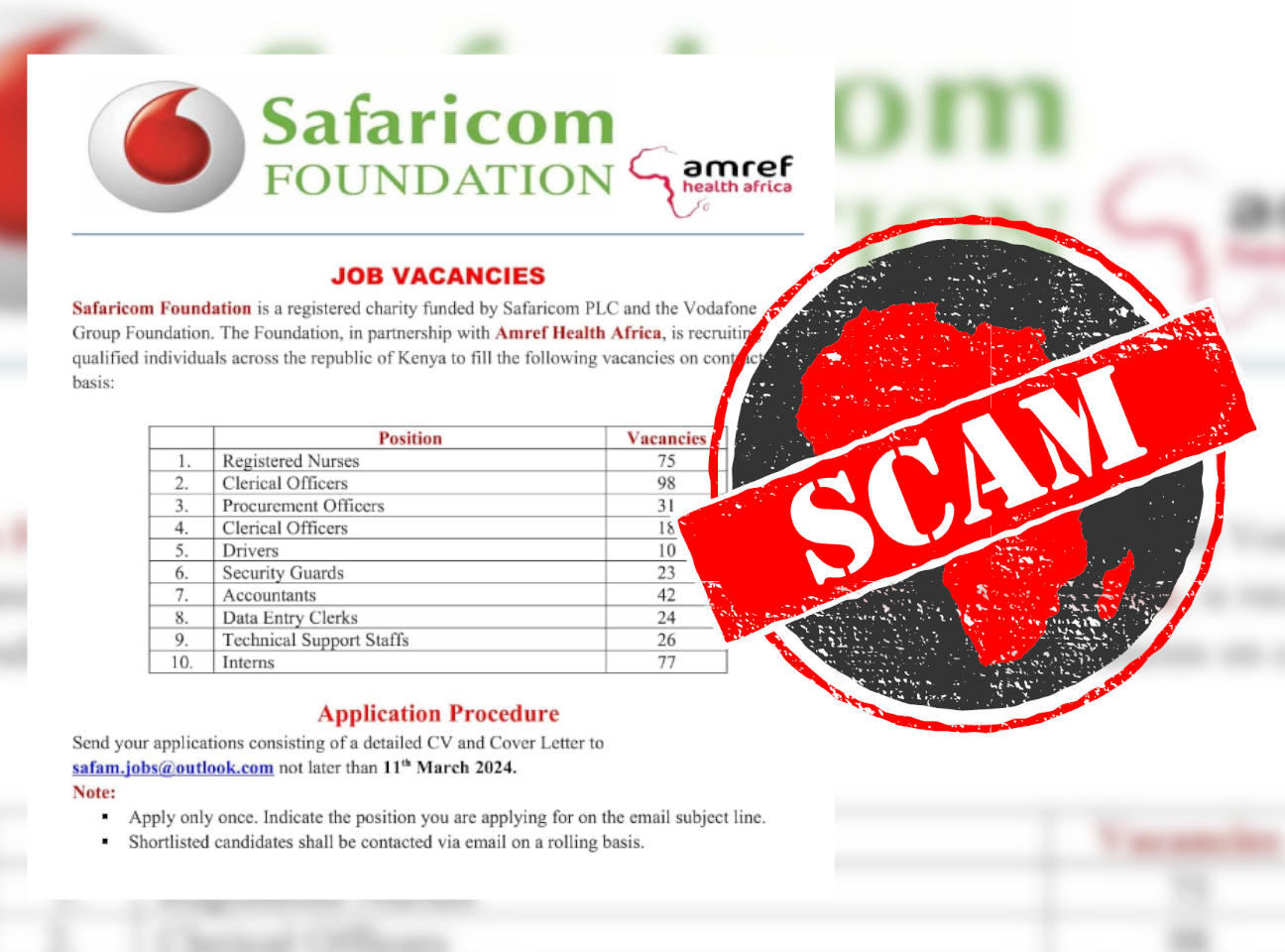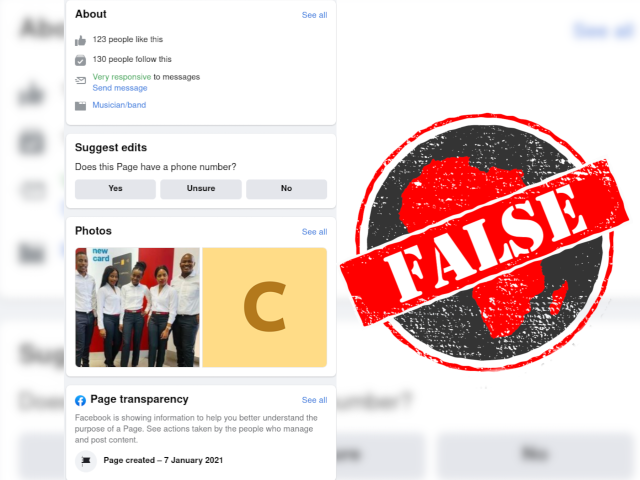IN SHORT: Be wary of an advertisement for non-existent jobs at the Safaricom Foundation, the corporate social responsibility arm of Kenya’s largest telecoms company.
According to a job advertisement posted on Facebook, the Safaricom Foundation is seeking qualified individuals across Kenya to fill various positions on a contract basis.
The foundation is the corporate social responsibility arm of Safaricom, Kenya’s largest telecommunications provider.
The ad, which was posted in a public group with over 55,200 members, claims the foundation has partnered with Amref Health Africa, a large health inter-governmental organisation.
The supposed vacancies include nurses, accountants, clerks, technical support staff, drivers and interns.
The advert also includes the application process, stating that interested candidates should send their CV and covering letter to [email protected].
Safaricom is one of Kenya's most profitable companies and employs thousands of people. This advert would therefore attract the attention of many job seekers.
But is the ad authentic? We checked.

Ignore fake job adverts
The foundation's website does not have a career section where jobs are advertised. All we found was a programme called Wezesha, which aims to equip young people with knowledge and skills for the workplace.
On the other hand, Safaricom has a career section on its official website. However, none of the vacancies listed in the circulating ad could be found on Safaricom’s website.
We contacted Safaricom to find out if they had any vacancies that matched the Facebook advert. In a response via its official X (formerly Twitter) account, the company said the ad was fake and the email being used to apply was not theirs.
“All our email addresses have the ‘@safaricom’ domain. The email address for Safaricom Foundation is [email protected],” wrote Safaricom.
For more tips on how to stay safe on social media, see Africa Check’s guide to Facebook scams and how to spot them.
Republish our content for free
For publishers: what to do if your post is rated false
A fact-checker has rated your Facebook or Instagram post as “false”, “altered”, “partly false” or “missing context”. This could have serious consequences. What do you do?
Click on our guide for the steps you should follow.
Publishers guideAfrica Check teams up with Facebook
Africa Check is a partner in Meta's third-party fact-checking programme to help stop the spread of false information on social media.
The content we rate as “false” will be downgraded on Facebook and Instagram. This means fewer people will see it.
You can also help identify false information on Facebook. This guide explains how.





Add new comment